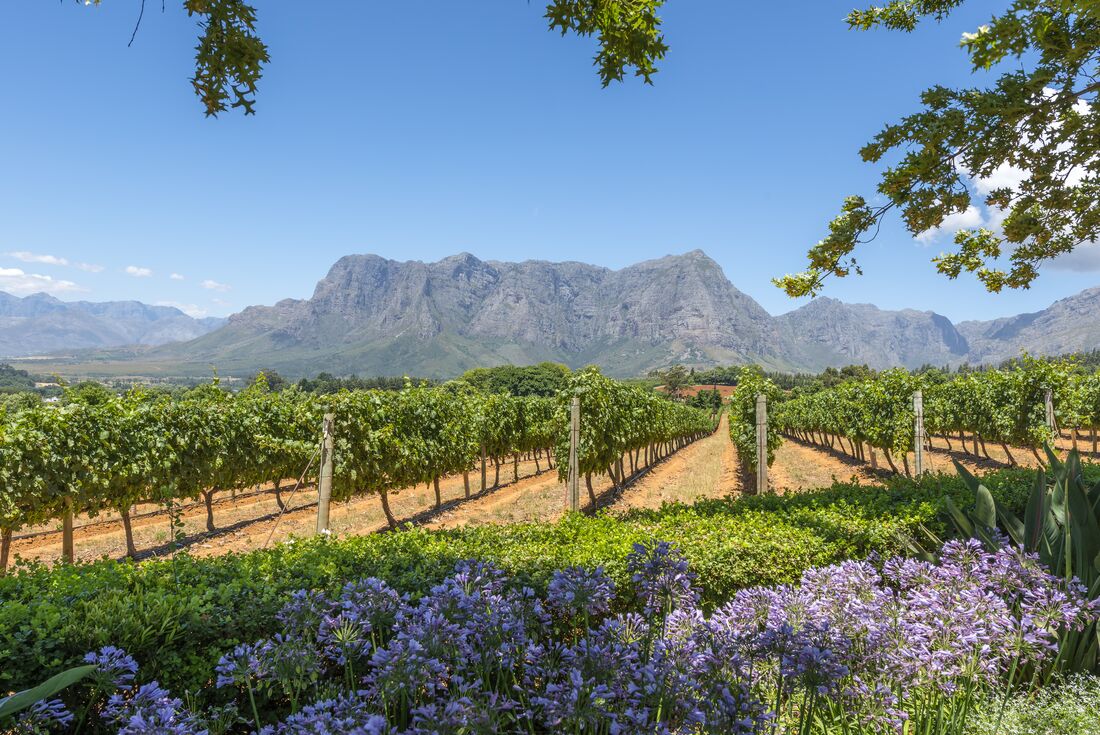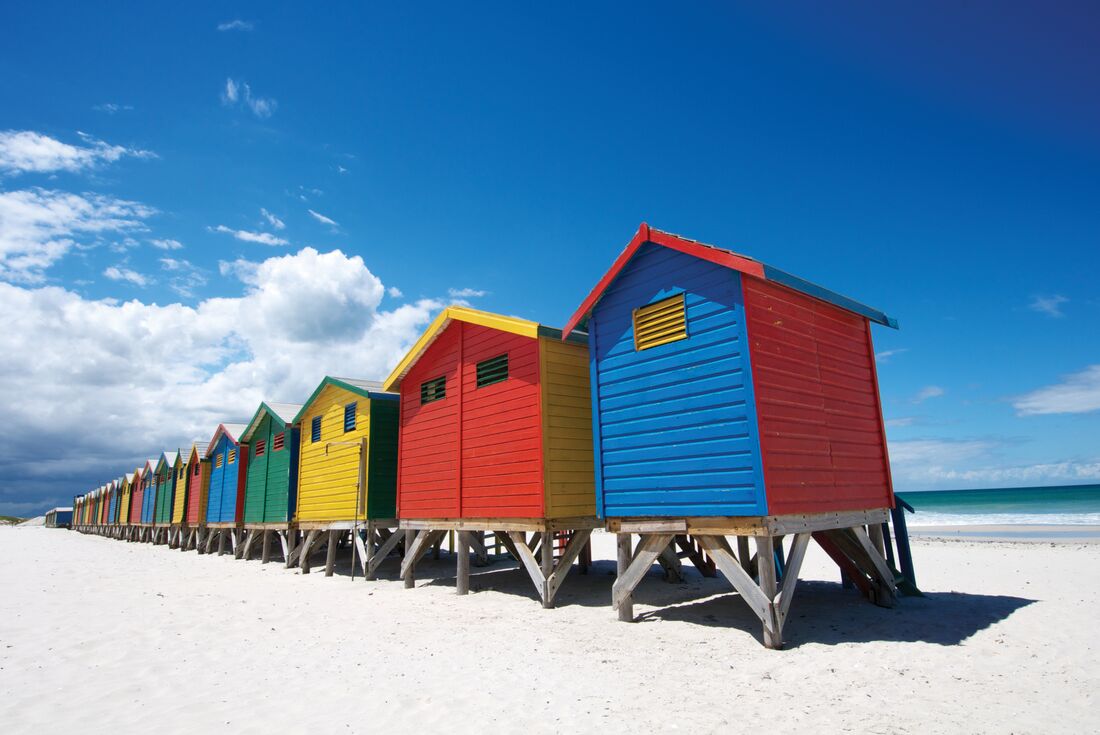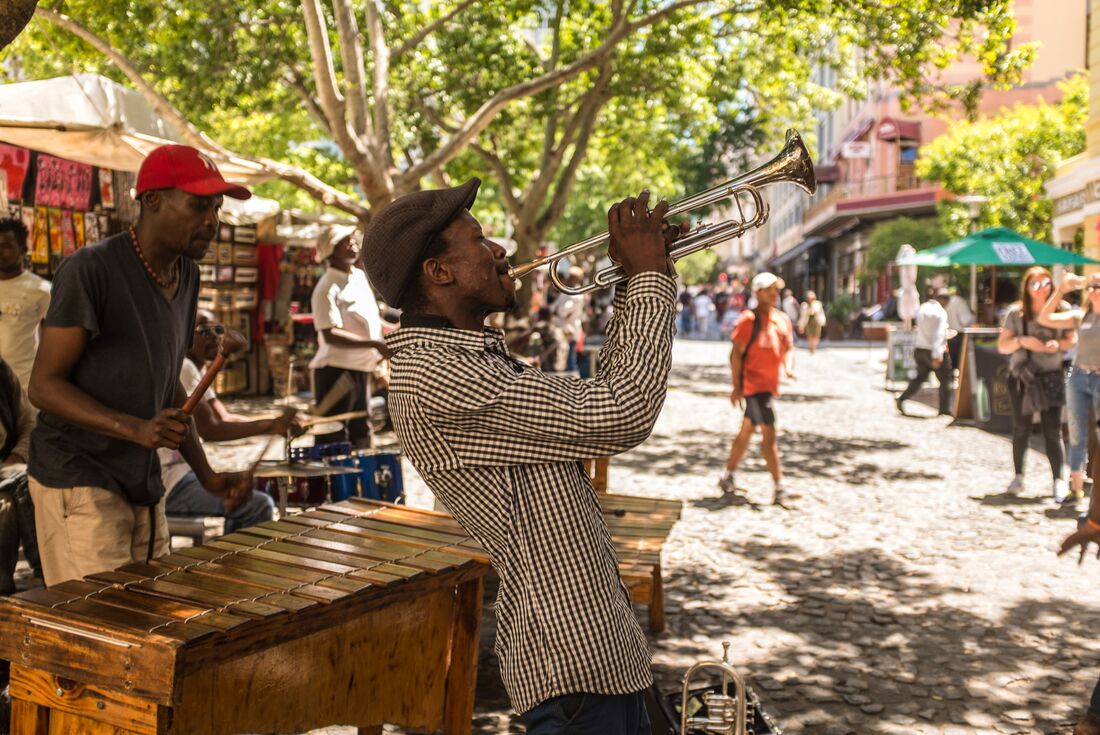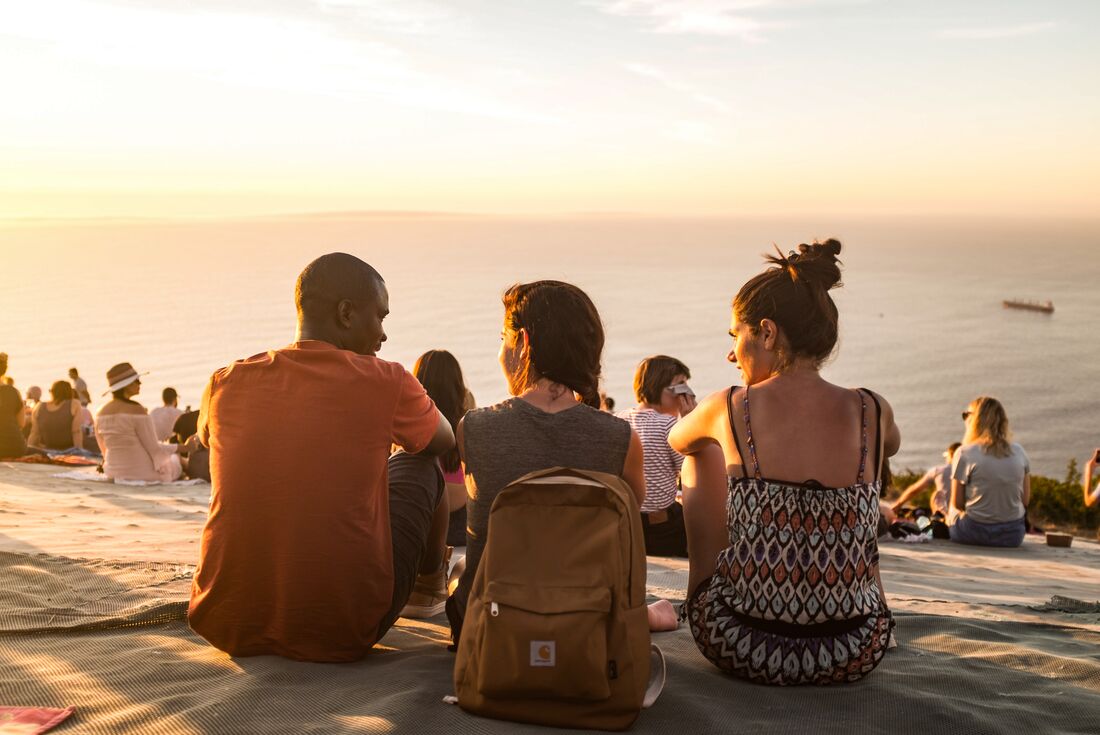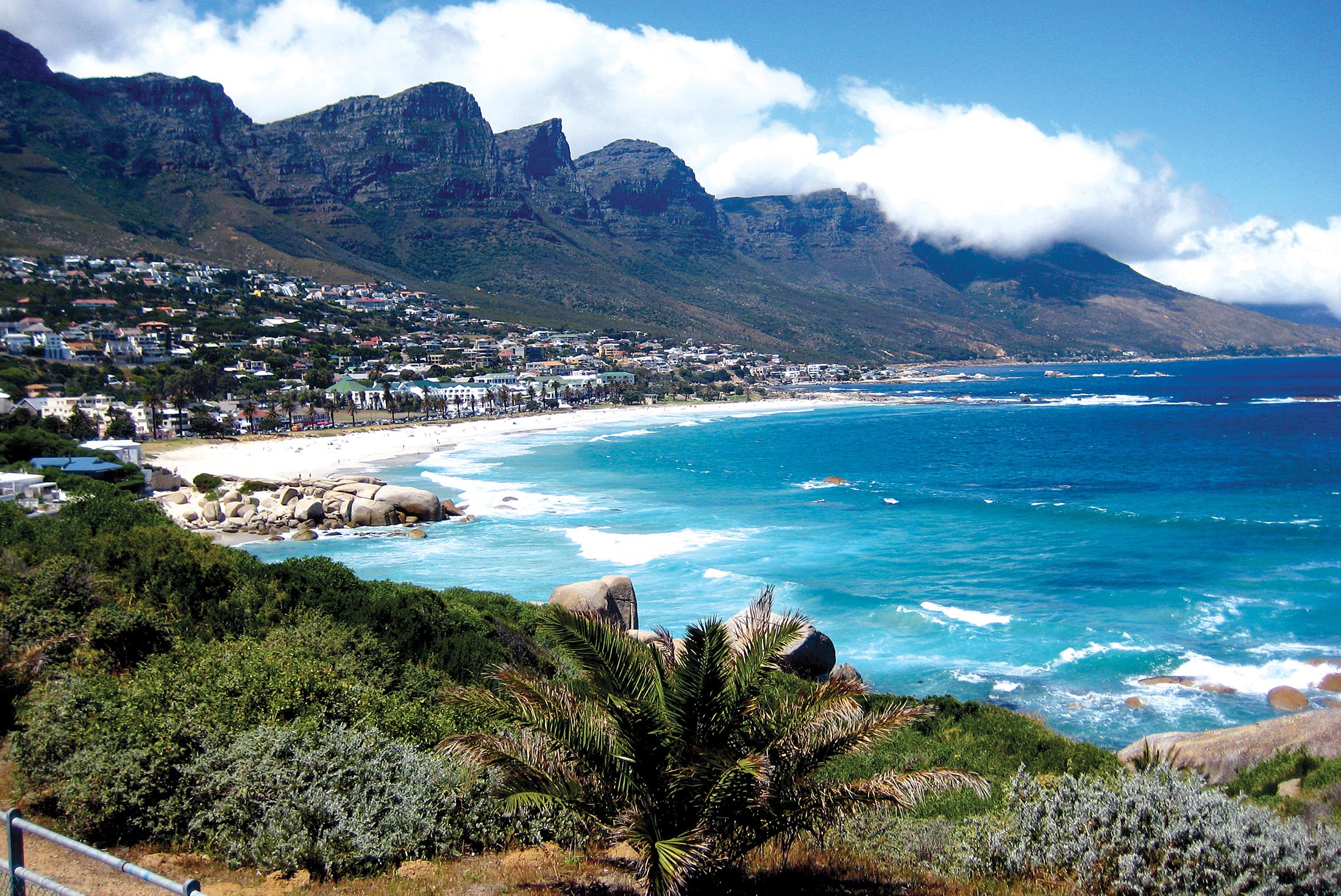- Take a walking tour around Cape Town and learn about the hardships of slavery, colonial life in The Cape and the tragedy of apartheid.
- Relax in the college town of Stellenbosch with a glass of wine after an illuminating city tour.
- Take in the beauty of Cape Town's coast while driving along the Cape Peninsula via Cape Point Nature Reserve and the Cape of Good Hope.
- Visit some of the region's best wine estates and indulge in wine tastings, chocolate pairings and artisanal cheeses.
- Enjoy a free day in Cape Town to explore places such as Robben Island, Table Mountain and/or the atmosphere of the Victoria and Alfred Waterfront.
07 Feb 2024
Cape Town & Winelands
UBAP
Validity: 01 Jan 2024 to 31 Dec 2024
Walk, munch and sip your way through Cape Town and the Cape Winelands. Boasting the best wines in South Africa, journey along the stunning Cape Peninsula to Stellenbosch and take a step back in history. From colonisation and slavery to the abolishment of the apartheid regime, learn how this nation is overcoming its turbulent past to become the modern and upbeat society it is today.
Comfort
Short Breaks
Van
2
Cape Milner Hotel
2a Milner Road
Tamooerskloof
Cape Town
SOUTH AFRICA
Phone: 27 (21)4261101
If you have pre-booked an airport transfer please look out for our representative holding an Intrepid board with your name at the arrival terminal. Please do not go with anyone else. The driver will wait for an hour after your scheduled arrival time. If you are delayed beyond one hour after your scheduled arrival time, please make your own way to the hotel. If you are making your own way to the hotel there are safe and reliable airport taxis which will cost around ZAR300.
Cape Milner Hotel
2a Milner Road
Tamooerskloof
Cape Town
SOUTH AFRICA
Phone: 27 (21)4261101
If you have pre-booked a departure transfer, please inform your group leader or local representative and they will notify you of your departure transfer time. If you are making your own way to the airport the hotel will be able to help book you an airport shuttle or taxi. Please ask at reception.
1. An complimentary arrival transfer is included. Please provide your flight details at the time of booking or a minimum of 15 days before travel. 2. This is a join-in trip, so if other travellers have booked on the same date you may share some activities.
On this trip you'll be accompanied by several different local guides and drivers, who are all specialists in their own area.
Many national governments provide a regularly updated advice service on safety issues involved with international travel. We recommend that you check your government's advice for their latest travel information before departure and ensure that your travel insurance covers you for all areas your itinerary covers. Please refer to our website's safety page for links to major travel advisories and updates on safety issues affecting our trip. We strongly recommend the use of a neck wallet or money belt while travelling, for the safe-keeping of your passport, air tickets, cash and other valuable items. Leave your valuable jewellery at home - you won't need it while travelling. Many of our hotels have safety deposit boxes, which is the most secure way of storing your valuables. A lock is recommended for securing your luggage. Your group leader or local representative will accompany you on all included activities, however during your trip you'll have some free time to pursue your own interests, relax and take it easy or explore at your leisure. While your group leader or local representative will assist you with the available options in a given location, please note that any optional activities you undertake are not part of your Intrepid itinerary, and Intrepid makes no representations about the safety of the activity or the standard of the operators running them. Please use your own good judgement when selecting an activity in your free time. Please also note that your group leader or local representative has the authority to amend or cancel any part of the trip itinerary if it's deemed necessary due to safety concerns. For more details on the type of conditions and safety standards you can expect on your trip, please refer to Intrepid's operational safety policy on our website. We recommend that you take a moment to read through this information before travelling, and would appreciate any feedback on how well it's being implemented in the field: www.intrepidtravel.com/safety-guidelines
FIRE PRECAUTIONS Please be aware that local laws governing tourism facilities in this region differ from those in your home country and not all the accommodation which we use has a fire exit, fire extinguishers or smoke alarms. BALCONIES Some hotel balconies don't meet western standards in terms of the width of the balcony fence being narrower than 10cm. TRAFFIC AND DRIVING ON THE OTHER SIDE OF THE ROAD Depending on where you come from please note that drivers in this part of the world may drive on the opposite side of the road from what you are used to. Look both ways before crossing any road. Traffic can be a little more chaotic than you might be used to at home. Be aware! SEAT BELTS Please be aware that local laws governing transportation safety may differ from those in your home country and not all the transport which we use is able to provide seat belts. PICK POCKETING & PERSONAL SAFETY While travelling there is always the risk of pick-pocketing and petty theft, particularly in the more touristy cities. We recommend that you exercise caution when walking at night and encourage you to walk in groups and only on main, well-lit thoroughfares. Be particularly vigilant on public transport. Simple measures like carrying your day pack on your front, not hanging your bag over the back of your chair or on the floor and wearing a money belt will reduce any chance that your valuables should go missing. WATER SAFETY Please take care when taking part in any activities in the ocean, river or open water, where waves and currents can be unpredictable. It's expected that anyone taking part in water activities is able to swim and have experience in open water. All swimmers should seek local advice before entering the water. TRAVEL ADVICE & TRAVEL INSURANCE We recommend that you check your government's advice in relation to the areas you will be visiting for their latest travel information before departure and ensure that your travel insurance covers you for all areas your itinerary covers.
PASSPORT You’ll need a valid passport to travel internationally and most countries require your passport to have a minimum of 6 months validity, so remember to check the expiry date. We need your passport information to get everything ready for your trip so it’s important that the information on your booking matches your passport exactly. Please take care to provide the correct details. We recommend carrying a copy of the photo page of your passport while travelling and leaving a copy at home with family or friends. VISAS & ENTRY REQUIREMENTS Many countries require a visa and obtaining the correct visa for your trip and any countries you may transit through is your responsibility. We recommend you check your visa requirements as soon as you have booked your trip. This will ensure you have time to prepare your documents and for your visa application to be processed. You can check the entry requirements for your nationality on your government's foreign travel advisories, consular websites or on our page here: www.intrepidtravel.com/visa-entry-requirements PASSPORT As a general rule most countries expect that your passport has a minimum of 6 months validity remaining. Please ensure the name on your passport matches the name on your booking and airline tickets. Your passport details are required to complete your booking. Your consultant will contact you when this is required. Take a copy of the main passport pages and other important documents with you, and leave another copy at home with family or friends. VISAS Visas are the responsibility of the individual traveller. Entry requirements can change at any time, so it's important that you check for the latest information. Please visit the relevant consular website of the country or countries you’re visiting for detailed and up-to-date visa information specific to your nationality. Your consultant will also be happy to point you in the right direction with acquiring visas. Visas can take several weeks to process, so familiarise yourself with any requirements as soon as you have booked your trip to allow for processing time. SOUTH AFRICA: Many countries do not need visas to visit South Africa as a tourist for up to three months. Please check with the relevant consulates as to whether a visa is required Entry Requirements – Passports: Please note that non-machine readable passports are no longer accepted by South African immigration. All visitors to South Africa must have a machine readable travel document (e-passport). Failure to present an e-passport will result in denied entry. Passengers with a valid visa issued in a non-machine readable passport will be handled on a case by case basis, but a fine will still be applicable. Entry Requirements - Yellow Fever Certificate: A valid Yellow Fever Vaccination Certificate is required for all passengers over one year of age who arrive or are transiting through South Africa, from a country or region listed by the World Health Organization as infected by yellow fever. Travellers unable to present a valid yellow fever vaccination certificate issued at least 10 days before arrival in South Africa will be refused entry. There is no option for travellers without a vaccination certificate to be vaccinated on arrival. Please note this also includes transiting through an infected country or region. NEW ZEALAND PASSPORT HOLDERS: Effective 15th August 2019, New Zealand visitors no longer require a visa for South Africa.
Take a walking tour around Cape Town and learn about the hardships of slavery, colonial life in The Cape and the tragedy of apartheid.
Relax in the college town of Stellenbosch with a glass of wine after an illuminating city tour.
Take in the beauty of Cape Town's coast while driving along the Cape Peninsula via Cape Point Nature Reserve and the Cape of Good Hope.
Visit some of the region's best wine estates and indulge in wine tastings, chocolate pairings and artisanal cheeses.
Enjoy a free day in Cape Town to explore places such as Robben Island, Table Mountain and/or the atmosphere of the Victoria and Alfred Waterfront.
On Short Breaks Adventures, you maintain a good level of independence and freedom with the added bonus of having the details sorted out for you. You’ll have lots of free time and you won’t be accompanied by a trip leader. This means that all included activities and tours will be run by different local Intrepid partners, and these may operate independently from each other. The included activities and transfers will operate on a join-in basis, which means that you could have your adventure all to yourself, or others may join you along the way. If you would prefer to travel in a group with a dedicated leader, just get in touch with your booking agent and they will take you through some alternatives. Regardless of where you stay, power cuts and breaks in hot water are sometimes unavoidable, as in any developing country. In particular, South Africa suffers from load-shedding: rolling blackouts that are engineered specifically to share out available power in the region.
GENERAL HEALTH All travellers need to be in good physical health in order to participate fully on this trip. For the safety and wellbeing of yourself and others, if you are unwell prior to travelling, please stay at home and contact us to make alternative arrangements. When selecting your trip please make sure you have read through the itinerary carefully and assess your ability to manage and enjoy our style of travel. Please note that if in the assessment of our group leader or local representative a traveller is unable to complete the itinerary without undue risk to themselves and/or the rest of the group, we reserve the right to exclude them from all or part of a trip without refund. You should consult your doctor for up-to-date medical travel information or for any necessary vaccinations before departure. We recommend that you carry a first aid kit as well as any personal medical requirements in their original packaging as they may not easily be obtained while travelling. If you are carrying medication, ensure you check your government's foreign travel advice for any local restrictions or requirements. YELLOW FEVER: A valid international certificate of vaccination against Yellow Fever is required in many countries if you are arriving from a country with risk of yellow fever (eg. Kenya). You may need to present this on arrival at the airport or border crossing. Some countries will refuse entry if you are unable to present your certificate. It's also quite common for your home country to request a Yellow Fever certificate on your arrival back home. It is your responsibility to check with your doctor well in advance of leaving home about the Yellow Fever requirements for the countries you'll be visiting. DRINKING WATER As a rule, we recommend you don't drink tap water, even in hotels, as it may contain much higher levels of different minerals than the water you are used to at home. For local people, this is not a problem as their bodies are used to this and can cope, but for visitors drinking the tap water can result in illness. Generally, this isn't serious, an upset stomach being the only symptom, but it's enough to spoil a day or two of your holiday. Many hotels and lodges provide safe drinking water, while bottled water is another alternative. Water consumption should be about two litres a day. Rehydration salts, motion sickness tablets, and diarrhea blockers are available from many pharmacies - please source from home and bring them with you on your travels.
Your group leader or local representative will endeavour to cater to specific dietary requirements where possible, and vegetarianism and gluten intolerance will be catered for in most instances. There are, however some meals and activities that are fixed in advance and therefore cannot be modified to suit dietary requirements. Please notify your booking consultant of any dietary requirements at the time of booking. For those suffering from particular food allergies, your group leader or local representative will endeavour to disclose to their fullest knowledge the main ingredients in dishes being consumed. It is, however, your personal responsibility to ensure that you do not ingest any foods to which you are allergic.
When it comes to money matters on the trip, every traveller is a little different. You know your spending habits better than we do, so please budget a sensible amount for things like meals not included, drinks, shopping, optional activities, tipping and laundry. It’s always better to bring a little more than you think you’ll need. Also make sure you’ve read your trip details thoroughly so you know what’s included in the trip price and what isn’t. This should make budgeting a little easier. You’ll find this info in the Inclusions section of your Essential Trip Information (that’s this document). Please note: all recommendations for additional costs, tipping etc. are in USD. You will need to convert these into the relevant local currency. MEALS NOT INCLUDED For lunches not included, a budget of USD10 to USD15 per meal will be more than sufficient. For dinners not included expect to budget between USD12 to USD25 for a main. These are indicative prices only. If you are in a tight budget or are happy to try local food, you can eat cheaper than this.If you want to try just the finest food at the finest restaurants, then you can expect meals to cost as much as in western countries. TIPPING Gratuities aren’t compulsory on your trip, but they can make a big difference to locals employed in the tourism industry. If you are happy with the services provided, a tip is an appropriate way to thank them. While it may not be customary to you, it is of great significance to the people who will take care of you during your travels, inspires excellent service, and is an entrenched feature of the tourism industry across many Intrepid destinations. TIPPING GUIDE To give you a bit of guidance, we’ve put together the following tipping notes. These are just suggestions, based on feedback from past travellers and our staff on the ground. - Restaurants – When checking the bill, if there’s an addition of 10% service charge, there’s no requirement for tipping. Otherwise, 10% of the total bill amount is appropriate. - Lodge staff - Tipping boxes are often in the common areas and approximately USD2 per day is appropriate - Guides & Drivers – The amount is entirely a personal preference; however as a guideline USD2 to USD4 per staff member, per day can be used. Of course you are free to tip more or less as you see fit, depending on your perception of service quality and the length of your trip. Remember, a tip is not compulsory and should only be given when you receive excellent service. EMERGENCY FUNDS We try to plan for every eventuality, but there are still some things beyond our control. Please make sure you bring an extra USD500 for emergencies (e.g. natural disasters or civil unrest). Sometimes these things necessitate last minute changes to our itineraries, and we can’t guarantee there won’t be some extra costs involved. CREDIT CARDS, ATMS AND MONEY EXCHANGE: Credit cards are generally accepted in tourist shops and some restaurants across Africa. Visa and Mastercard are generally preferred over American Express, Diners, etc. Smaller venues take cash only. Foreign currency is easily changed at exchange bureaus and they generally offer the best rates. With ATMs being increasingly available in the many major towns and cities and even some campsites, credit or debit cards are a convenient way to access money. Be aware that your withdrawing limit may vary from country to country (regardless of your withdrawing limit in your home country) and it can be as low as the equivalent to USD100 per day. Throughout Africa, cards with the Visa logo are most readily recognised, although MasterCard is also accepted in most places. A charge is made for each international transaction - please check with your bank how much this fee will be. Check with your bank before leaving home that your card can be used as a debit card in Africa. You may also want to notify your bank that you are visiting Africa as it's not unknown for banks to freeze cards which show sudden transactions in other countries. If you're on a multi-country tour, your group leader or local representative will be able to give you an approximate idea of how much money you may need for your stay in each country. PLEASE NOTE: Many businesses and banks in Africa, especially East Africa, do not accept US dollar notes older than 2006. If you are bringing USD, we strongly recommend large bills in good condition, 2006 series onwards only. Any old or damaged notes may not be accepted. COMMISSIONS Intrepid understands that the receipt of commissions in exchange for recommending particular shops or services is ingrained in the culture of the tourism industry. For this reason, we have established a centralised fund for contributions from recommended suppliers so these can be collected and distributed back into the business. Actively managing the receipt of commissions helps us maintain the level of quality you expect on one of our trips. Travel is always an adventure so Intrepid cannot explicitly guarantee the quality of a product but we aim to provide the best value trips in the market. Please let us know via the feedback form completed after your trip if we are successfully meeting - or exceeding - this objective.
What you need to bring will vary according to the trip style you have chosen, the countries you are visiting and when you are travelling. Generally speaking, we recommend you pack as lightly as possible and make sure that you are able to carry and lift your own luggage, and walk with it for short distances. Most travellers carry their luggage in a backpack, although an overnight bag with a shoulder strap would suffice if you travel lightly. Smaller bags or backpacks with wheels are convenient although we recommend your bag has carry straps. You'll also need a day pack/bag to carry water and a camera etc for day trips. Below are some ideas and helpful tips on what you specifically need for this trip. ESSENTIALS: - Closed in shoes. As most of our trips include some bush walking we highly recommend that you take a pair of comfortable, closed-in walking shoes. Closed-in shoes will help to protect your feet from cuts and scratches when walking through bush/grass-lands, and will also act as a barrier protection in rare cases against bites or stings from dangerous animals in this environment. - Lightweight clothing. You will need to bring a mixture of lightweight clothing, some warm items for the evenings, and long shirts and pants for protection against mosquitoes in the malaria areas. Clothes should be easy to wash and dry. Some people like to take jeans for evenings out but they can be tough to dry and should not be used for trekking. Avoid nylon and other synthetics, which can be very uncomfortable in hot weather. Ex-military or military style clothing and equipment is NOT recommended. - Sun protection - hat, sunscreen, sunglasses RECOMMENDED: - A good quality, high-beam headlamp or torch for around the lodges and permanent tented sites at night. Some of these properties have limited lighting and are powered by generators that switch off at a certain time. - Waterproof/windproof jacket is a good idea for wet days, and early morning or evening activities when it can be cool. - Warm fleece and beanie for morning and evening activities including game drives where applicable. - Personal medical kit. Large kits will be on hand at the lodges and from your group leader or local representative (on trips that have a dedicated group leader or local representative ) but we recommend you carry items such as mild pain killers, electrolytes and bandaids. - Insect repellent. - Water bottle. The sale of bottled water contributes to an enormous environmental problem around the world. In addition to the water in bottles, the production of a 1 litre plastic bottle takes 2 litres of water and 200ml of oil. A large proportion end up in limited landfill or discarded in waterways and natural environments. - Camera with spare battery or power bank. - Binoculars OPTIONAL: - Ear plugs to guard against a snoring room-mate. - A good book, a journal or smart phone with music player. LUGGAGE LIMIT: Please keep your luggage to a minimum. One small soft-sided bag plus a day pack (no more than 15-20kgs in total per person) is essential.We recommend against bringing hard/externally framed suitcases as they are difficult to store and can damage equipment and other travellers' belongings. If your trip is beginning and ending at the same location, excess luggage can usually be stored at your arrival/departure hotel and can be collected after your trip. VALUABLES: Please try to avoid bringing unnecessary valuables, and use your hotel safe. It’s also a good idea to purchase a money belt or pouch that is easily hidden. We strongly recommend that you photocopy all important documents e.g. air tickets, passport, vaccination certificate, etc. and keep the copies separate from the originals. While not valid, a photocopy makes it very much easier to obtain replacements if necessary. BATTERIES/POWER: Our trips have access to power to recharge batteries for phones and cameras every couple of days. We always recommend that you carry an extra battery or powerbank just in case. CONSERVATIVE DRESS FOR WOMEN: In many parts of Africa women travelers should dress modestly as there is a wide range of cultural differences. Wear skirts or shorts that reach just above the knee and tops that cover shoulders at a minimum. If visiting coastal areas wear a cover-up when you step off the beaches.
PLASTIC BAG BANS ACROSS AFRICA While Namibia holds people liable to a fine of N$500 or imprisonment for entering Game Parks with a plastic bag, Botswana has announced a countrywide ban on plastic bags to come into effect on 1 November 2018. The ban will make the importing, trading and commercial use of plastic bags a criminal offence. Exceptions will be made for plastics that are essential for health and hygiene. With these announcements, Botswana and Namibia join other African countries such as Tanzania, Kenya, Ethiopia, Uganda, Tunisia, Morocco, Rwanda, Uganda, Somalia and Eritrea that have banned plastic bags. South Africa imposed a levy on plastic bags in 2004 but they have not yet been banned. Many countries are strictly enforcing this and have been searching luggage at border points. Camping stores are good for obtaining waterproof reusable bags, for dirty laundry etc, prior to departure.
We like to think our Intrepid travellers are all connected by a love of adventure and passion for seeing the world in a different way. We've laid down a few non-negotiable rules to ensure everyone feels connected, comfortable and safe on our trips. We ask that you respect your fellow travellers, group leader or local representative, and local people and places we visit in all circumstances. We don't tolerate any forms of violence and expect that you follow the local laws, customs and regulations in any destination we travel to. Any behaviour contrary to the above, including any behaviour that prevents our staff from performing their duty of care or continuing the itinerary as planned, may result in travellers being removed from the trip. If you consume alcohol while travelling, we encourage responsible drinking and expect you to abide by local alcohol laws. To ensure the well-being of everyone on the trip, all decisions made by group leaders or local representatives and ground staff are final. Romantic relationships between travellers and group leader or local representative are not permitted while on trip. By travelling with us, you agree to comply with these rules and the laws and customs of all countries visited. If something is concerning you during your travels with us, please speak to your group leader or local representative immediately. Alternatively, contact us on the emergency contact number detailed in your Essential Trip Information’s Problems and Emergency Contact section.
After your travels, we want to hear from you! We rely on your feedback. We read it carefully. Feedback helps us understand what we are doing well and what we could be doing better. It allows us to make improvements for future travellers. http://www.intrepidtravel.com/feedback/
While we always endeavour to provide the best possible holiday experience, due to the nature of travel and the areas we visit sometimes things can and do go wrong. Should any issue occur while you are on your trip, it is imperative that you discuss this with your group leader or local representative straight away so that they can do their best to rectify the problem and save any potential negative impact on the rest of your trip. We recognise that there may be times when your group leader or local representative may not be able to resolve a situation to your satisfaction - if this is the case, please ask the group leader or local representative to speak to their direct manager. You may also choose to provide details in your online feedback, which we ask you to complete within 30 days of the end of your trip. Please do be aware that it is very difficult for us to provide any practical help after the trip is completed, so informing us while still travelling will give us the opportunity to resolve the issue in real-time. For general contact details please use the following page: http://www.intrepidtravel.com/ourtrips/contact/ In case of a genuine crisis or emergency, you can reach our local office on the numbers below: Peak Southern Africa: +27828229407
Our Responsible Travel Policy outlines our commitment to preserving the environment, supporting local communities, protecting the vulnerable, and giving back to the places we travel. All our trip group leaders or local representatives, suppliers, and staff are trained on these principles and are core to us delivering sustainable, experience-rich travel. Explore the different parts of our Responsible Travel Policy by visiting: https://www.intrepidtravel.com/responsible-travel Our Responsible Travel Policy outlines our commitment to preserving the environment, supporting local communities, protecting the vulnerable, and giving back to the places we travel. All our trip group leaders or local representatives, suppliers, and staff are trained on these principles and are core to us delivering sustainable, experience-rich travel. Explore the different parts of our Responsible Travel Policy by visiting: https://www.intrepidtravel.com/responsible-travel
We created our not-for-profit, the Intrepid Foundation because you – our travellers – told us you wanted to make an even greater impact in the communities you visit. The Foundation works by teaming up with partners around the world so that together we can deliver greater positive impact at scale. Partners are identified by our local staff who live and work in our destinations. They harness their powerful community connections to determine the issues that matter most and select local partners who can deliver real solutions. Since 2002, the Intrepid Foundation has raised more than $14million dollars and supported more than 160 communities worldwide. Now, with over 40 partners all over the world, your donations are helping to restore forests in Kenya, empower women in Honduras and promote elephant welfare in Laos, to name just a few. For more information about the Intrepid Foundation, please ask your group leader or local representative or visit our website: http://www.theintrepidfoundation.org/ This trip supports Helping Rhinos, who work alongside expert conservationists to create and expand ecosystems where sustainable populations of rhino and other critically endangered wildlife can thrive. Donations support their all-female ranger program, which focuses on anti-poaching activities such as destroying traps, conducting routine vehicle stop-and-searches, installing camera traps and early warning technology, and monitoring suspicious activity. Intrepid will double your impact by dollar-matching post-trip donations made to The Intrepid Foundation. To find out more or make a donation, visit https://www.theintrepidfoundation.org/t/helping-rhinos
Travel insurance is compulsory on all our trips for those travelling internationally. We require that at a minimum you are covered for medical expenses including emergency repatriation. If you are travelling within your home country or region please confirm before travel that you are entitled to access the public medical system easily should an accident occur. We strongly recommend all travellers have a policy that also covers personal liability, cancellation, curtailment and loss of luggage or personal effects. For international trips, you will not be permitted to join the group until evidence of travel insurance and the insurance company's 24-hour emergency contact number has been sighted by your group leader or local representative. If you have credit card insurance your group leader or local representative will require details of the participating insurer/underwriter, the level of coverage, policy number, and emergency contact number rather than the bank's name and your credit card details. Please contact your bank for these details prior to arriving in-country. For travellers who reside within the European Union, Switzerland or USA the requirement to purchase travel insurance cannot be compulsory. However the purchase of travel insurance is still highly recommended, and travellers from these regions who decline travel insurance when travelling outside of their home region must sign a Travel Insurance Waiver Form at the Group Meeting, recognizing personal responsibility for emergency medical and repatriation costs should they arise. For assistance with travel insurance or other services, please visit the link below: https://www.intrepidtravel.com/booking-resources/our-services
On this Short Break Adventure, the fellow travellers that may join you during activities can come from all corners of the world and likely a range of age groups too. We ask you to be understanding of their various needs and preferences - patience with your fellow travellers is sometimes required for the benefit of everyone's travel experience. If you are requested to be at a place at a certain time, ensure that you don't keep others waiting. We have found time and time again that the very best adventures we operate are those where the dynamics between travellers work well - this takes just a little effort on your part. Due to privacy reasons, we are unable to provide you with contact details and any personal information about your fellow travellers booked on your Short Break Adventure prior to departure. Please note many of our Short Break Adventures operate with a minimum of 1 person, so there may be instances where you are the only person on the trip.
ITINERARY CHANGES Our itineraries are updated regularly throughout the year based on customer feedback and to reflect the current situation in each destination. The information included in this Essential Trip Information may therefore differ from when you first booked your trip. It's important that you review this information prior to travel so that you have the latest updates. Due to weather, local conditions, transport schedules, public holidays, political unrest or other factors, further changes may be necessary to your itinerary once in-country. Your group leader or local representative will keep you up to date with any such changes once your trip is underway. OPTIONAL ACTIVITIES A selection of optional activities that have been popular with past travellers are listed in the day-to-day itinerary. This isn't an exhaustive list and should be used as a guide only for some of what might be available. Prices are approximate, are for entrance fees only, and don’t include transport to and from the sites or local guides unless indicated. All activities are subject to availability, and maybe on a join-in basis. It may not be possible to do all the activities listed in the time available at each destination, so some pre-planning for what you are most interested in is advised. When it's recommended that travellers pre-book these activities, look for a note in the Special Information section of the day-to-day itinerary. For most, they can either be organised independently on the day, or let your group leader or local representative know you are interested at the Welcome Meeting and they can assist. Where activities are considered medium or high risk, we work with operators whose safety and credentials we have sighted and assessed. Although it is possible that you may find the same activity cheaper with another operator on the ground, we cannot vouch for the safety or quality of that operator. Medium and high-risk activities not listed above have not been assessed by us and as such our staff and group leader or local representative are unable to assist you with organising these activities. Activities that contravene our Responsible Travel policies are also not listed. Please remember that the decision to partake in any activity not listed is at your own discretion and risk.
Hotel (4 nights)



